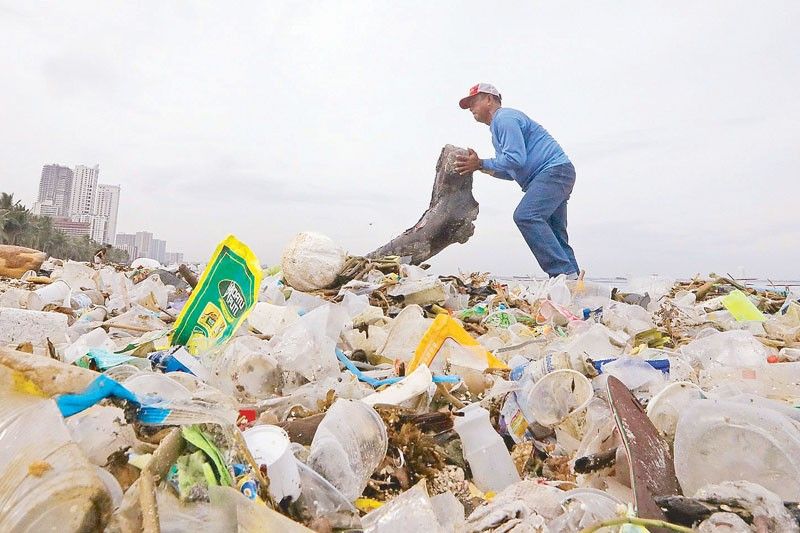Group launches drive vs microplastics

MANILA, Philippines — Environmental group Greenpeace yesterday launched a campaign called Black and White against the use of plastics, citing studies that show the presence of microplastics in Metro Manila air and in the waters of Laguna de Bay and Tañon Strait.
At a press conference, Greenpeace Philippines campaigner Marian Ledesma said that based on a report from the Organization for Economic Co-operation and Development, global annual plastic production reached 460 million metric tons in 2019. The figure is expected to triple by 2060. Ledesma added that only nine percent of plastic around the globe get recycled.
“Plastic pollution is more than just trash in our oceans. With plastic’s overproduction, humanity is at risk. Its impacts reach far and wide, posing a grave threat to biodiversity and our food system, while also harming people’s health, exacerbating social injustices, and fueling the climate crisis,” she said.
She said their Black and White campaign aims to push for a strong global plastic treaty.
“Greenpeace calls for a strong treaty that encompasses comprehensive measures, including eliminating plastic pollution from production to disposal, capping and phasing down plastic production, and ensuring a just and inclusive transition to a low-carbon, zero-waste, toxic-free, and reuse-based economy,” Ledesma said.
“An estimated 170 trillion plastic particles are adrift in our oceans, choking our marine ecosystems and entering the food chain,” Ledesma added.
Ledesma said that recent studies reveal the presence of microplastics in the air of Metro Manila and in the waters of Laguna de Bay and Tañon Strait.
A study by the Environmental Science and Pollution Research noted the presence of microplastics in the surface water of Laguna de Bay, the country’s largest lake.
It was the first documented evidence of the presence of microplastics in the country’s largest lake.
The United Nations Environment Program considers plastic pollution a serious environmental problem. It has been identified as an emerging issue that may impact heavily on biological diversity and human health, alongside climate change.
Ledesma stressed that plastic production is a significant contributor to the climate crisis as 99 percent of plastics are made from oil and gas.
- Latest
- Trending






























